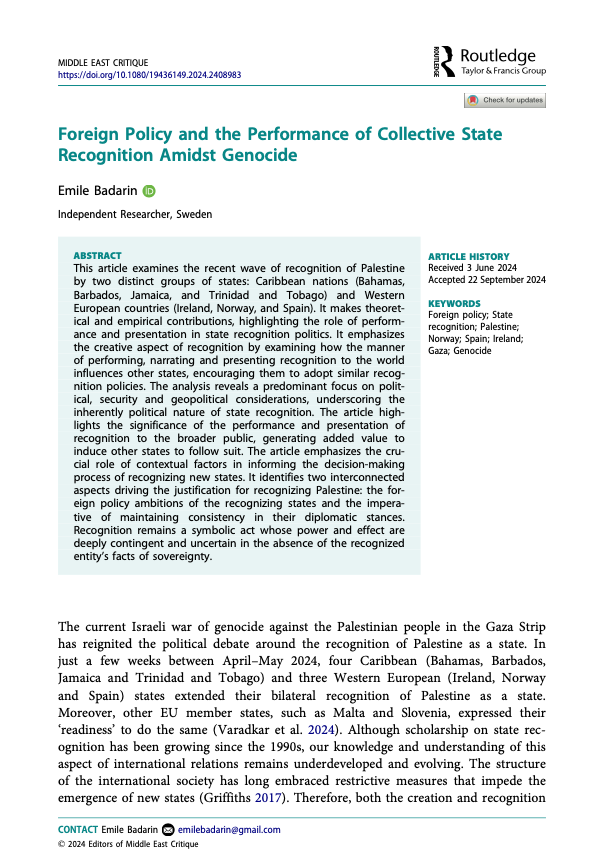This article examines the recent wave of recognition of Palestine by two distinct groups of states: Caribbean nations (Bahamas, Barbados, Jamaica, and Trinidad and Tobago) and Western European countries (Ireland, Norway, and Spain).
It makes theoretical and empirical contributions, highlighting the role of performance and presentation in state recognition politics. It emphasizes the creative aspect of recognition by examining how the manner of performing, narrating and presenting recognition to the world influences other states, encouraging them to adopt similar recognition policies.
The analysis reveals a predominant focus on political, security and geopolitical considerations, underscoring the inherently political nature of state recognition. The article highlights the significance of the performance and presentation of recognition to the broader public, generating added value to induce other states to follow suit.
The article emphasizes the crucial role of contextual factors in informing the decision-making process of recognizing new states. It identifies two interconnected aspects driving the justification for recognizing Palestine: the foreign policy ambitions of the recognizing states and the imperative of maintaining consistency in their diplomatic stances. Recognition remains a symbolic act whose power and effect are deeply contingent and uncertain in the absence of the recognized entity’s facts of sovereignty.
Cite as: Badarin, E. 2024. “Foreign Policy and the Performance of Collective State Recognition Amidst Genocide”. Middle East Critique, 4(33): 635-654. DOI: 10.1080/19436149.2024.2408983
